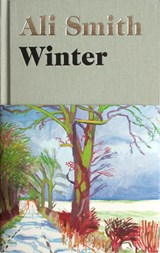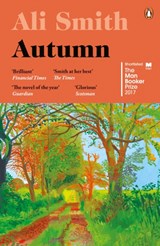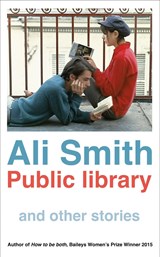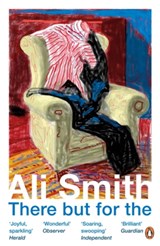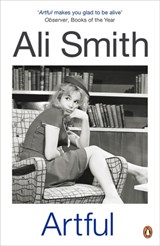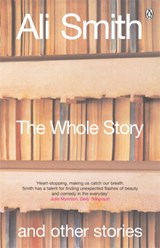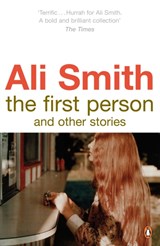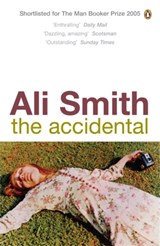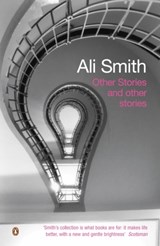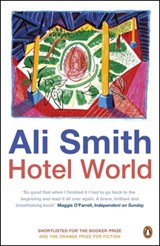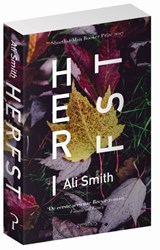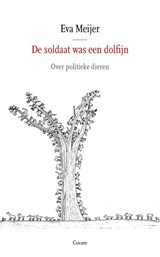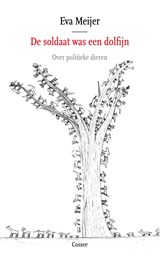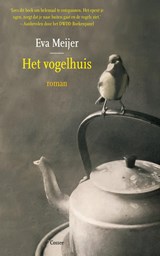A List of Things I Wanted to Tell You
16 maart 2018Dinsdag 13 maart werd Ali Smith in de Amstelkerk geïnterviewd door Liddie Austin over haar nieuwste roman Winter. Eva Meijer verzorgde een laudatio, in de vorm van een lijst. Over Smiths werk, over Wittgenstein, over prairiehonden en het verhaal 'The First Person'. Vandaag mogen we haar verhaal publiceren.
Dear Ali Smith,
It is impossible to speak about your work in the twelve minutes that I have. I mean: it is impossible to do justice to the written worlds you have given us in the space I have here. I will not speak about how in your work language is always also about language; how stories are also always about other stories; nor about the different voices in Hotel world, or How to be both; the children who know; the strangers coming in from the outside to show what’s there more clearly, because we now see it from their perspective; about the female artist, forgotten and remembered; about memories and the language that carries them; about things that are inside of other things; stories inside of other stories; time – I could go on but I will not. Instead, I will just read you a list of things that I wanted to tell you.
- One week after I defended my PhD thesis, I lost my balance, literally. I woke up one Saturday morning - this happened at the end of September last year - and when I tried to get to the bathroom, I fell down. I checked to see if I could still speak, if I remembered my name and date of birth, and I thankfully could. It turned out I suffered from a condition called labyrinthitis, in Dutch an ‘ontsteking aan het evenwichtsorgaan’ – an infection of the inner ear, called the ‘balance organ’ in Dutch, which is shaped like a labyrinth, and therefore the disease is called labyrinthitis in English. In the weeks, or perhaps years - but let me stick to the weeks before this happened - I had been incredibly busy, doing interviews and preparing the thesis defence, and then there was the actual defence, and I was writing and teaching and writing and teaching, and then I simply fell down. The world became a much quieter place, cloudlike, and my condition forced me to be silent. In one of those slow, white, weeks I read Winter. Winter is of course my favourite season, I was born in winter, and I was looking forward to reading this book. I should also mention that my dogs were happy I was ill, because of the time I spent with them, and because things suddenly became quiet.
- Thinking about language is like repairing a torn spider’s web with your fingers, Wittgenstein writes. You write about Walter Benjamin here and there, but not Wittgenstein I think, so I thought I should mention him, also because he is my favourite philosopher, and he is often right (though not always, but I will get back to that at number four of this list). The combination of light and heavy in his work reminds me of your work. Wittgenstein writes that when we think about what language is, we should look at how it is used. We cannot give one definition of language – that is a mistake many philosophers make, because that is simply not how language works. Or how anything works. Novelists know this of course – philosophers and novelists both work with truth, try to represent and grasp what we find around and inside of us, but in different ways: the philosopher always somehow tries to build houses with straight walls and the novelist will simply point at the flower growing somewhere over there, in the shadow of the house.
- Something else Wittgenstein says – I promise to stop speaking about Wittgenstein soon – is that the clothes of language make everything look alike. What he means is that a word, like love, makes it seem as if there is one thing, love, while instead ‘love’ can refer to so many different experiences, feelings, relations. Humans get confused about this, also because there are strong cultural expectations that come with these words. I mention love specifically because for me your work is so much about love – and perhaps hope, and of course language, but I already mentioned that. When I say love I do not mean Hollywood’s romantic love, even though Hollywood is in there as well, prominently, and not even falling in love, although you make people fall in love beautifully. What I mean is that your work shows us the many ways in which love works: art can be love, dialogue is love, taking care of the past is love, environmental activism is love, deep love, activists can be bitter but they all loved deeply at some point. Your books show us something about what it means to care deeply, what it means to really care, also where that goes wrong, because it always does and it always doesn’t.
- So one thing that Wittgenstein is not right about, is animals. The nonhuman ones. He writes that they may have the simplest forms of language, but not language, understood as proper language, in the human sense.
This is not so much a flaw in the structure of his thinking, which is actually perfect for thinking about nonhuman animal and interspecies languages (but I will tell you about that some other time), it is simply a matter of prejudice and stereotype. He had similar problems with women. Anyway, let me tell you about prairie dogs.
Prairie dogs, a species of ground squirrel, live in tunnels under the ground and do not leave their village, which makes it easy for predators to find and attack them. All they have to do is wait near the entrance of a tunnel and sooner or later a prairie dog will show up to eat – and be eaten.
The prairie dogs have therefore developed a complex warning system. Prairie dogs use different sounds to describe different predators. Their calls sound like birdcalls and like a dog barking, which is why they are called prairie dogs. When calling to each other they mention whether the predator is coming from the sky or land; this is important because it requires a different type of response. They do not, however, stop there as they manage to describe the intruder in detail. When a human approaches they tell the others it’s a human being and mention their height, the colour of their hair, of their T-shirt, and the object they might be carrying with them (such as umbrellas or guns). When dogs approach, they mention their size and colour, and may add the speed at which the dog is approaching. Their calls change meaning when the order of elements in a sentence changes, which can be compared to grammar in human sentences. They use verbs, nouns, and adverbs, which they can combine to formulate new expressions for predators unknown. In addition to alarm calls, they have a form of social chatter - that we, as of yet, do not know much about - and some species do the jump-yip: a kind of wave that involves throwing their hands up in the air and doing a little backward jump while yelling ‘yip’, which is thought to be an expression of joy and enthusiasm. They exercise the jump-yip when predators, such as snakes, leave their territory. Prairie dogs are not unique in the way they use language, though how well their language has been studied by humans is unlike any other.
- The story about the prairie dogs is what people will remember from this evening, or at least from my talk, even though it is kind of beside the point. Sorry.
- I once tore a story out of a book , out of your book, literally I mean. It was the last story from The First Person and Other Stories, which is called 'The First Person'. The story is about the newness of new love and it’s one the most beautiful stories about falling in love I ever read. Yet it is about much more, because it is - just like love - about understanding that you do not own anything. Not love, not your love, not even yourself. And that is not a loss, even though it might feel like it. It’s a gift. So anyway, I tore the story from the book, put it in an envelope, and gave it to my then-lover, to express something I had tried to express but somehow was not able to get across to her. She had a boyfriend, and this was all out in the open. Yet we were all fine with this. Polyamorous relationships do justice to the blablabla, at least in theory, but we simply couldn’t do it. I couldn’t do it while she could and he could not. She never responded to the story. I gave her the rest of the book as well, later, just so she could put it back in.
- I bought the book again for myself. This happened years ago and the feeling is not more than a memory now. I reread the story last week, because I wanted to say something about it tonight, and it was still as good as it was in my memory. The hope and sadness of new beginnings, how it can make you lose your balance, falling for someone. I have now regained my actual balance, thankfully, even though I still have problems with the very bright light that winter sometimes brings.
- It’s almost like a song, that story.
- Lastly I would briefly like to say some things about Frances Power Cobbe, whom you have probably heard of, but many here haven’t – because it is also always about telling the other story, the one that has been erased from the books. She was an Irish writer, social reformer, anti-vivisection activist, and leading women's suffrage campaigner, who lived from 1822 to 1904. She also wrote many books, with promising titles such as Criminals, Idiots, Women and Minors (1869). She formed a marriage with the Welsh sculptor Mary Lloyd. In letters and published writing, Cobbe referred to Lloyd alternately as ‘husband’, ‘wife’, and ‘dear friend’. They lived with a dog companion, Hajjin, who travelled with them to Wales after Cobbe retired. Cobbe even wrote a book from the dog’s perspective, about 80 years before Virginia Woolf wrote Flush. They had their photograph taken with the dog, which apparently was a way to show your marital bond in the Victorian age. A great way to show that you are married, I would say, much better than with rings.
Anyway.
Thank you, Ali, see you again in Spring.



